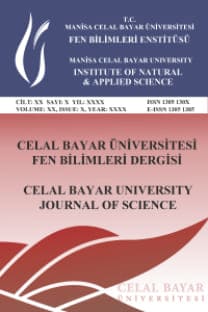Öğrencilerin Web Tabanlı Matematik Öğretimine Yönelik Görüşleri / Students’ Wiews Towards Web Based Mathematics Teaching
Bilgisayar
teknolojilerinin değişmesi, gelişmesi ve
hayatın her alanına etki etmesiyle, zaman ve mekân kavramı değişmiştir. Artık
pek çok şey zamandan ve mekândan bağımsız olarak yapılabilmektedir. Öğrenme de
bunlardan birisidir. Teknolojinin sunduğu birçok imkân ve seçenek, öğrenme ve
öğretmenin önündeki bazı sınırlılıkları kaldırmıştır. Web teknolojilerinin
öğretimde kullanılması, geleneksel öğretimi destekler niteliktedir. Yeni nesil
öğrencilerin teknolojiye duyduğu merak ve ilgi, web tabanlı öğretimle
birleştiğinde pozitif etki yapması beklenmektedir. Bu çalışmada, meslek lisesi öğrencilerinin web
tabanlı matematik öğretimine yönelik görüşleri araştırılmıştır. Çalışma
kapsamında 58 öğrenciye ulaşılmıştır. Veri toplama aracı olarak Kişisel Bilgi
Formu ve Görüş Belirleme Ölçeği uygulanmıştır. Kişisel Bilgi Formunun
verilerine, frekans ve yüzde analizleri yapılmıştır. Öğrencilerin web tabanlı
matematik öğretimine yönelik görüşleri ile cinsiyet arasındaki ilişki bağımsız
gruplar t-testi ile, diğer analizler ANOVA ile gerçekleştirilmiştir. Çalışma
sonunda, lise öğrencilerinin web tabanlı matematik öğretimine yönelik
görüşlerinin olumlu olduğu sonucuna ulaşılmıştır.The concept of time and place
has changed with the change of computer technologies, their development and
their influence on every aspect of life. Many things can now be done
independently of time and space. Learning is also one of them. Many
opportunities and options offered by technology have removed some of the
limitations of learning and teaching. The use of Web technologies in teaching
supports traditional teaching. It is expected that the curiosity and interest
of new generation students in technology will make a positive impact when combined
with web-based instruction.
In this study, the opinions
of vocational high school students towards web based mathematics teaching were
investigated. Within the scope of the study, 58 students opinions were
analysed. Personal Information Form and Opinion Identification Scale were
applied for data collection tool. Frequency and percentage analyzes were made
to the Personal Information Form. The relationship between students' views
towards web based mathematics teaching and gender was examined by independent
groups t-test and other analyzes by ANOVA. At the end of the study, it was concluded that
the opinions of high school students towards web based mathematics teaching
were positive.
___
- Kawazoe, M.; Yoshitomi, K. E-learning/e-assessment systems based on webMathematica for university math-ematics education. MSOR Connections. 2017; 15(2), 17–24.
- ISSN: 1305-130X
- Başlangıç: 2005
- Yayıncı: Manisa Celal Bayar Üniversitesi Fen Bilimleri Enstitüsü
Sayıdaki Diğer Makaleler
İbrahim Akkaya, Mehmet Engin, Yavuz Öztürk
Soft Intervals and Soft Ordered Topology
Gözde YAYLALI, Bekir TANAY, Nazan Çakmak POLAT
An exponential finite difference method based on Padé approximation
Rıza Atav, Osman Namırtı, Arzu Yavaş, Fatma Göktepe
Öğrencilerin Web Tabanlı Matematik Öğretimine Yönelik Görüşleri
Sezen SİVRİKAYA, Sefa DURMUS, Aslihan DALMAZ, Mesut OZDİNCER
Dendrimer Teknolojisi Kullanılarak Aromaterapi Özelliğine Sahip Fonksiyonel Yünlü Kumaş Eldesi
Arzu YAVAŞ, Fatma GÖKTEPE, Rıza ATAV, Osman NAMIRTI
On the Concept of Limit Inferior and Limit Superior
